#personal growth books
Text
IGNITE TO WIN: A TRANSFORMATIVE JOURNEY OF SUCCESS AND FULFILLMENT BY SAM GARDNER
INTRODUCTION
In the world of personal development and self-help literature, few books have garnered as much attention and praise as "Ignite To Win" by Sam Gardner. Released in [year], this transformative masterpiece has been hailed as a roadmap to success, happiness, and fulfillment. In "Ignite To Win," Gardner delves deep into the human psyche, guiding readers on a journey of self-discovery and empowerment. Throughout this article, we will explore the key themes, insights, and impact of "Ignite To Win," highlighting the book's profound lessons that have touched countless lives.

The Author: Unveiling the Mind Behind "Ignite To Win"
Before diving into the book itself, it is essential to understand the man behind the words – Sam Gardner. A prominent figure in the field of personal development, Gardner's background and experiences have significantly influenced the book's content. We will explore his journey, his motivations for writing "Ignite To Win," and how his unique perspective has shaped the book's message.
The Premise of "Ignite To Win"
"Ignite To Win" opens its pages with a compelling premise, inviting readers to embark on a transformative journey towards a more fulfilling life. We will delve into the book's central concepts, where Gardner lays the groundwork for self-discovery, personal growth, and the pursuit of success.
The Pillars of Success: Unveiling the Core Principles
At the heart of "Ignite To Win" lie the pillars of success that Gardner asserts are essential for achieving one's goals. From mindset shifts to time management techniques, we will examine each core principle in-depth, understanding how they contribute to personal growth and empowerment.
Overcoming Obstacles: Navigating Challenges on the Road to Success
No journey toward success is without its challenges. In this section, we will explore how "Ignite To Win" equips readers with the tools to navigate and overcome obstacles that inevitably arise. Whether it's fear, self-doubt, or external setbacks, Gardner's insights provide a framework for resilience and tenacity.
The Power of Visualization and Goal Setting
One of the standout features of "Ignite To Win" is its emphasis on visualization and goal setting as powerful tools for achievement. We will analyze the techniques Gardner proposes, exploring their psychological underpinnings and real-world applications.
Cultivating Positive Habits: The Key to Sustained Success
Success is not a destination but a journey, and "Ignite To Win" emphasizes the importance of positive habits in creating a sustainable path to victory. This section will delve into the habits Gardner advocates, backed by scientific research and anecdotal evidence.
From Mindset to Action: Transforming Intentions into Results
A critical aspect of personal development lies in bridging the gap between mindset and action. We will explore how "Ignite To Win" motivates readers to translate intentions into actionable steps, fostering a sense of accomplishment and progress.
The Ripple Effect: How Personal Growth Impacts the World Around Us
Beyond personal success, "Ignite To Win" underscores the broader impact of individual growth on society. Gardner's book advocates for a more compassionate and interconnected world, where personal fulfillment is linked to collective well-being.
Real-Life Success Stories: The Testimonials of Transformation
Throughout its pages, "Ignite To Win" is interspersed with real-life success stories of individuals who have implemented Gardner's principles and witnessed remarkable transformations. We will share some of these inspiring stories, illustrating the tangible results of applying the book's teachings.
Critiques and Controversies: Examining the Book's Reception
In this section, we will explore both the praise and critiques surrounding "Ignite To Win." While many have lauded its impact, some have questioned its efficacy and applicability in diverse circumstances. By addressing these concerns, we can gain a more nuanced perspective on the book's strengths and limitations.
Conclusion:
"Ignite To Win" by Sam Gardner is a testament to the enduring power of personal development literature. Through its timeless wisdom, actionable advice, and profound insights, the book has ignited a spark in countless individuals seeking a more fulfilling life. Gardner's journey of self-discovery and empowerment has resonated with readers across the globe, and its impact will undoubtedly continue to shape lives for years to come. As we conclude this exploration of "Ignite To Win," we are reminded of the boundless potential within each of us to achieve greatness and create a positive ripple effect in the world.
#self help#self-help books#free ebooks to download#MOTIVATIONAL BOOKS#PERSONAL GROWTH BOOKS#BESTSELLER BOOKS#IGNITE TO WIN#BOOKS BY SAM GARDNER
2 notes
·
View notes
Text

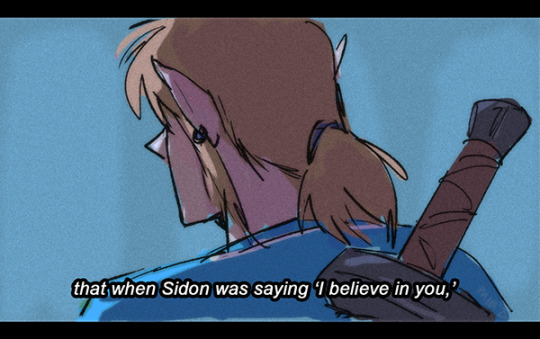
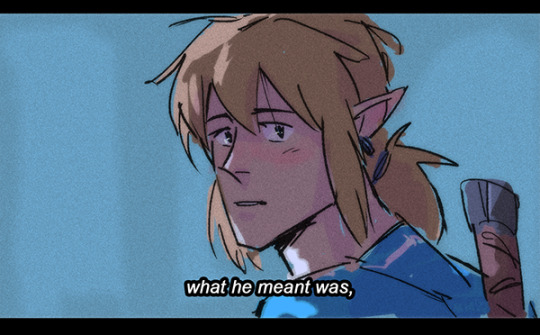
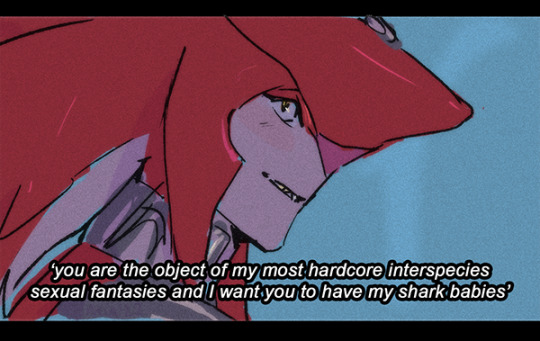
and even more amazing was the day Link realised he [redacted] him back
#loz#botw#sidon#link#sidlink#comic#you gotta read it the princess bride's grandpa's voice#and yes this is a kissing book#I was just going to put 'I love you' but ... well I'm me#you thought I was dead didn't you#well haHA#like a korok I am annoying and can pop up when you least expect it#guess who is playing the game again#its like 2019 again but with slightly more personal character growth on my part#not too much though or you wouldn't be comics like this
21K notes
·
View notes
Text

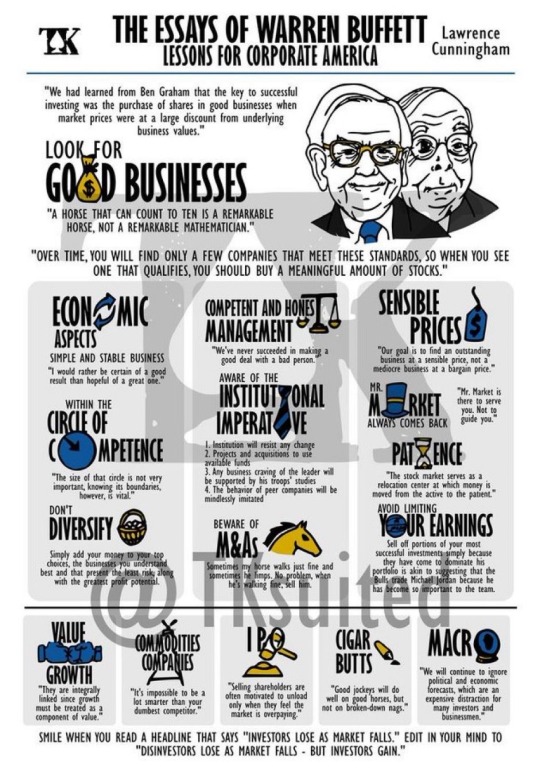
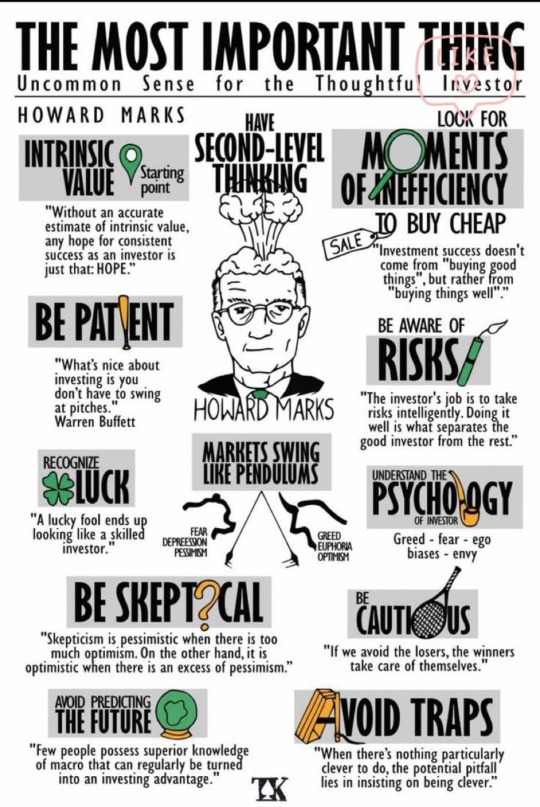
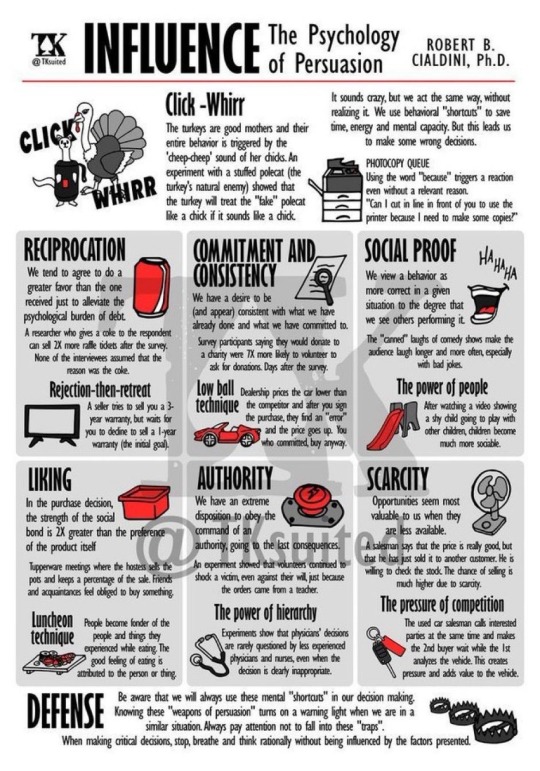



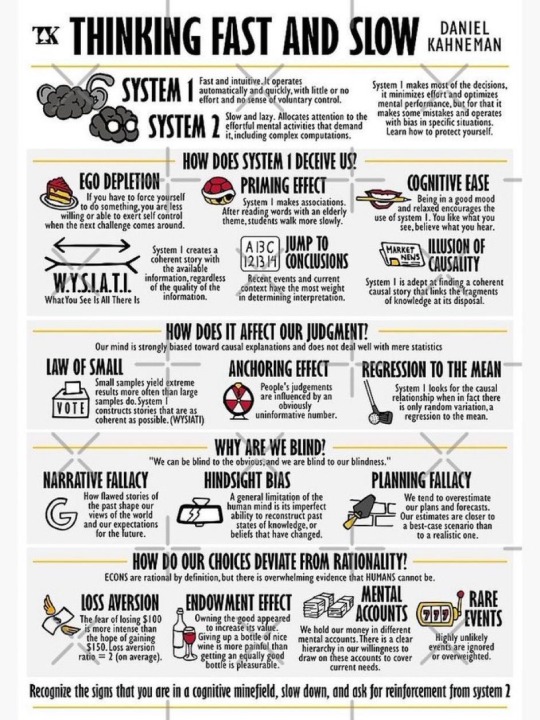


Sent over by my mentor
#c suite#ceo aesthetic#strong women#powerful woman#personal growth#that girl#getting your life together#balance#productivity#Books#book recommendations#summaries#Mentor#mentor recommendations
1K notes
·
View notes
Text

🌑🌒🌓🌔🌕
#comics#mini comic#comicpage#cosmic art#comic#artists on tumblr#short comic#comic art#comic books#enlightment#rumi#personal growth#mystical art#fantasy art#art#artwork#illustration#procreate
10K notes
·
View notes
Video
youtube
For ultimate balance, forgiveness and health, we wrap up the finale of the INNER HEALING SERIES 2.0 Part 4- https://youtu.be/ES9ORGMM0Qw Here we examine how it all LINKS together with everything we discussed in Part 1, 2, 3. Understanding this means we come into expanded awareness to gain insights on our knowledge, wisdom and how we’re applying it in order to prepare where where going in 2023
#Linkronicity#Stacey Kumagai#Communications#Mindfulness#mindbodyspirit#soul journey#personal growth books#personal development#gaining clarity#self awareness#self-improvement#self-discovery#life coach#change#transformation#health and wellness#healingjourney#health and wellbeing
0 notes
Text
11 Lessons from the book Atomic Habits 🌟
"Atomic Habits" focuses on incorporating small, consistent habits into our lives to bring about significant change over time. The book introduces a four-step model for building habits, emphasizing cues, cravings, responses, and rewards. It also guides you in overcoming bad habits and self-limiting beliefs, demonstrating how simple habits can lead to substantial progress toward our goals.
Lesson 1: Habits Over Hobbies: You are not inherently bad at your hobbies. Instead, it's the lack of consistent habits that has held you back.
Lesson 2: Identity Matters: Our self-image greatly influences our habits. While it's important, you shouldn't let it hinder your growth.
Lesson 3: Stacking Habits: The concept of habit stacking involves adding a new behavior to an existing habit, which can help you build a more effective morning routine.
Lesson 4: Embrace the System: Rather than solely focusing on goals, it's important to love the process—the journey itself. It's about embracing the system that leads to progress.
Lesson 5: Something is Better Than Nothing: Even small efforts are valuable. The "Two-Minute Rule" encourages starting new habits that take less than two minutes.
Lesson 6: Overcoming Boredom: Staying motivated in habits requires keeping them interesting and within the right level of challenge. "The Goldilocks Rule" emphasizes that tasks on the edge of our abilities are most motivating. Habits won't always be exciting, and that's okay.
Lesson 7: Bouncing Back from Misses: Missing a habit occasionally is normal, but missing it twice can turn into a new habit. The key is to rebound quickly, maintaining the compound gains from previous good days.
Lesson 8: Shaping Your Potential: Our genes affect what we're good at and the chances we get. Instead of feeling stuck by genes, we should use our strengths. Special traits are like superpowers. Questions in the chapter help us find what we care about. Quotes remind us to focus on self-improvement, not comparing. Genes alone don't bring success; effort matters. Genes give hints, but we shape our success by using our strengths.
Lesson 9: Creating a Supportive Environment: Our surroundings are important. If we change our environment to match the habits we want, we're more likely to succeed. By setting up our space to help our habits, we can make good habits easier. People often limit themselves by thinking they can't do better. He also says that just luck doesn't explain success – hard work does. Whether it's moving stuff around or using visual reminders, these changes can really help us succeed in the long run.
Lesson 10: Creating or Breaking Habits: The Four Steps
These four steps are the foundation upon which many of his ideas are built. They are not only applicable to creating positive habits but also to breaking negative ones.
Cue: This is the trigger that initiates a behavior. It can be a specific time, location, emotional state, or preceding action that prompts your brain to start a habit.
Craving: Craving is the motivation or desire behind a habit. It's the feeling that drives you to engage in the behavior triggered by the cue. It's important to understand the underlying craving to effectively change a habit.
Response: Response refers to the actual behavior that you perform as a result of the cue and craving. This is the action that you take in response to the trigger and motivation.
Reward: Rewards are the positive outcomes or feelings that you associate with completing the habit. They reinforce the habit loop by making you more likely to repeat the behavior in the future.
He explains that these four steps form a habit loop, where each step is interconnected. The loop starts with a cue, followed by craving, which leads to a response, and ultimately ends with a reward. If any part of this loop isn't satisfying, the habit is less likely to stick.
Lesson 11: Success is a product of daily habits and overnight success is not overnight:
Success is not a result of overnight transformations but is instead rooted in the daily habits we cultivate. By recognizing the power of consistent, incremental actions, we can build a solid foundation for lasting success. This perspective challenges the allure of instant success and encourages us to focus on the journey of continuous improvement through daily habits.
#atomic habits#james clear#best seller books#bookshelf#booksbooksbooks#personal improvement#personal development#habits#personal growth#self improvement#self help#self awareness#self love
1K notes
·
View notes
Text
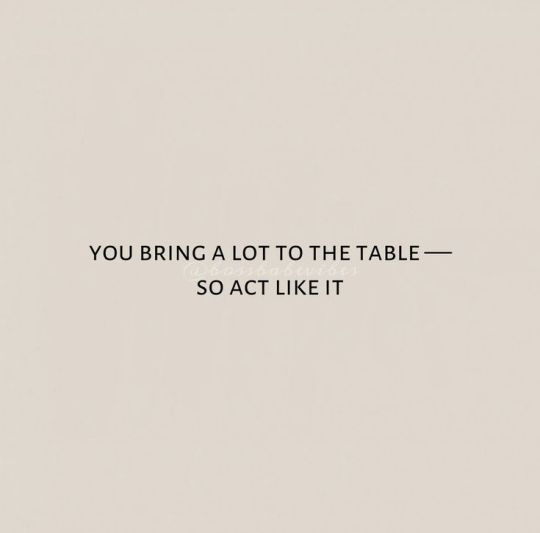
#curators on tumblr#inspiration#quote#quotations#words#literature#beautiful quote#book quote#life quote#quotes#quoteoftheday#motivation#confidence#mindset#self improvement#self love#self confidence#personal growth
482 notes
·
View notes
Text
I have heard many men say that they want an "intelligent woman" in their life. I would encourage them to think well.
Girls and intelligent women make their own decisions, have their own desires and set boundaries. You will never be the center of her life because she revolves around them. An intelligent woman will not allow you to manipulate or blackmail her. She is responsible for her actions.
Intelligent girls doubt, analyze, debate, displease, progress. These women had a life before you appeared in their lives, and will continue to have it even when you leave their lives. Such women report, do not ask permission. They are not looking for a leader to follow, a father who solved their life, or a child to save themselves by guiding them. They do not want to follow you, nor are they willing to show the right way to others.
Intelligent girls know that living without violence is a right, not a luxury or a privilege. They express nervousness, sadness, pleasure and fear in the same way, because they know that fear does not make them look weak, nor does nervousness make them look "masculine". These two emotions, but also the others, all together, make it look humane and that's enough.
An intelligent woman is free because she has fought for her freedom. But she is not a victim, she is a survivor. Do not try to limit her, because she will know how to escape. An intelligent woman knows that her value does not lie in the physical aspect. Think twice before judging her age, height, weight or sexual behavior because this is emotional violence and she understands it.
So before you say you want an "intelligent woman" in your life, ask yourself if you are really ready to be a part of her life.
— Gabriel Garcia Marquez
#Gabriel Garcia Marquez#intelligent woman#life quotes#book quotes#beautiful quote#romantic relationships#self improvement#personal growth#self love#healingjourney#healthy patterns#gabriel garcía#wise words#life lessons#it girl
307 notes
·
View notes
Text
Okay no I’m not done talking about swords, and their names, because sword names are IMPORTANT okay and they MEAN THINGS—
I rambled in the tags of this post about Eragon and Murtagh naming/renaming their swords to be positive, compared to their fathers’ respective negative sword names, but I want to go further into it.
First is the obvious one, Morzan’s Zar’roc, Misery, and Murtagh’s Ithring, Freedom. I’m almost certain Morzan names his sword as an offensive measure—and I don’t mean offensive as in insulting, I mean it in the combat sense. It’s a curse, almost, upon his enemies: any opponent he faces with this blade will be struck by misery, literally. But one thing we know about Morzan: he’s not particularly wise, and even his best works backfire on him. We see it with Selena, and his confidence that she loves him too much to betray him, so he never warded against her. He named his sword Misery, and Misery is all it brought him: he joined Galbatorix, brought the downfall of the Order, and lost his dragon to nameless madness; he killed Brom’s dragon, making an enemy of the man who once had idolized him and sealing his own demise by Brom’s hand; he threw Misery at his own child and pushed his wife to betray him, which ultimately led to the downfall of everything he had ever worked for. Talk about a curse. He upheld Misery, and Misery came right back to bite him in the ass.
And then Brom took Misery from him, and sequestered it away, and eventually gave it to Eragon without telling him its meaning; and Eragon wielded it without knowing its meaning or history, trying his best to do good with it, and even when he did learn its history and its name he resolved to work to give it a better legacy. After all, a good sword is a good sword. But Murtagh, Morzan’s son and heir, was not done with Misery, bore too painful a scar from Misery to let it go—he took Misery from Eragon and claimed it as his own, claiming his birthright, yes… but taking Misery away from Eragon, in the very same moment that he also protected Eragon from capture and forced servitude, the fate that had befallen Murtagh himself. Complicated as feelings all around may have been, intentional as the act itself may or may not have been, Murtagh here is very much intentionally shouldering that burden. He fully believed that Eragon was another son of Morzan, he could have easily justified rejecting that part of his history and his father’s legacy and offloading it on his younger brother, and yet he didn’t. He took it for himself and declared it his own.
And then he called it Freedom.
After enduring torture and enslavement and a hundred other humiliations, he took Misery in hand and said, no. I do not uphold you. I do not fight for you. I fight for Freedom, for my own and my loved ones’, and for the Freedom of all. He looked at the horror of his past and refused to let it define him. He looked at his father’s mistakes and refused to be bound to them. He took a name of offense, of attack and hostility, and changed it to a name of preservation, of defense, of peace.
And then there’s Eragon, with Brisingr, Fire, and Brom’s mysterious Undbitr, Void-biter. At first glance it may seem that they have absolutely nothing to do with each other, but I would not be here if I wasn’t going to loudly and fervently declare otherwise.
My guess for Brom’s reasoning of naming his sword Undbitr would be somewhere between edgelord teenager antics (look me in the eye and tell me you wouldn’t have wanted a sword name Void Biter at twelve years old) and his admiration for Morzan, who named his sword the simple yet devastatingly clever Misery. Void-biter, bite of death, the bite that would send his opponents to the void. To darkness, to nothingness, to anti-life and anti-hope. A sword lost after his dragon’s death, never seen again, and yet Brom himself succumbs to the bite of his own personal void: he dedicates himself to vengeance, throws everything he has of himself into orchestrating Morzan’s downfall, and the downfall of Galbatorix and the rest of the Forsworn for good measure. It’s implied, from Brom’s own admission of fearing his son would hate him and Oromis’s discussion of his near-suicidal madness after Saphira’s death, that revenge is all Brom lived for until he met Selena—and even after he met her and fell in love with her, I suspect his need for vengeance is what ultimately decided the events leading both to Morzan’s death and Selena’s doomed reunion with Murtagh. Brom may have lost Void-biter, but the void consumed him anyway.
And then there’s Eragon. Yes I’ve said that already but if anything can sum up these books, it’s And then there’s Eragon. The first spell he learns is fire. A dangerous force, certainly, one that can easily break control and wreak untold havoc and destruction, but what force of nature doesn’t fall into that category? He could easily have learned, and thus be represented by, wind or ice or lightning, or even just pain or break. But he didn’t, and he’s not. He wields fire. A force of nature, a destructive weapon… but also the foundation of a home, fire in the hearth; the fuel of invention, to shape metal and glass; and most importantly, a light in the dark, the hope of dawn in the long cold night. Eragon names his sword Brisingr, and it’s not merely a weapon: it is a beacon. His father was consumed by darkness, but Eragon is the one who guided him back to the light, who gave him something to live for after he had defeated his enemy and lost his love; Eragon was the figurehead of the rebellion, the spark that drove a passive resistance into the blaze of true revolution; and now Eragon builds the new hearth of the Dragon Riders, to tend and defend it for future generations.
What a change from misery and the void.
Fire, and freedom. Hope, and peace. Family, and love.
I think Selena would be very proud of her sons.
#inheritance cycle#christopher paolini#eragon shadeslayer#murtagh (inheritance cycle)#brom (inheritance cycle)#selena (inheritance cycle)#morzan (inheritance cycle)#saph scribbles#murtagh spoilers#very light but still there#im normal about these books im so normal about these books (lying)#need a murtagh and eragon reunion STAT i need eragon to be all mushy and proud of murtagh for his growth as a person#while murtagh is VERY uncomfortable and fully expecting to be kicked out but refusing to say anything because the hugs are nice even#if he won’t actually admit it
79 notes
·
View notes
Text
"It's normal for siblings to fight" Okay well it's not normal to be extremely classist and look down on your sister for being non-conforming. Or to go to the woman who ordered the death of your pet to tell her about your father's plans, when he specifically warned you against doing so, because you want to marry the boy you saw attack your sister and her friend (contributing partially to said father's death and your sister being unable to escape on the ship he chartered). Or to think of your sibling as unsatisfactory in comparison to another when you believe her to be dead. I notice that none of the "Sansa and Arya are going to reunite and instantly have no issues" crowd ever acknowledge any of this, which makes it seem like they don't actually believe what they say about their relationship being normal and easily reconciled. People wanting them to have no issues simply because they're siblings is another example of how fandom likes to flatten complex characters and relationships. They get reduced to being bickering siblings when their conflict runs deeper than that. If the author is telling you that they have "deep issues" to work out [X], I don't understand being so adamant about ignoring said issues. I also get the sense it's about ignoring the capacity for a certain character to be flawed, but that isn't going to change the fact that her "slip of the tongue" is very likely to be revealed and a source of further conflict 🤷🏾♀️
#arya stark#sansa stark#house stark#asoiaf#also if it's so normal for siblings to fight then why are you guys losing your minds over us theorizing they won't get along??#the amount of condescending /that's just how siblings act/ takes I see 🙄#sorry I guess? that we read the book and don't just delete parts of the story because we find it convenient?#it's not even like takes about them being enemies is widespread the most I see is that they aren't instantly bffs when they reunite 😭#some people theorize they'll never be close but guess what? that's a completely fair and valid assumption based on their relationship!#personally I think they'll have a sweet reunion before the issues they have inevitably surface again because while they've been through#a lot they haven't fundamentally changed as people or the values they hold#and I think that's going to be very interesting to read about!#I can't figure out why people always take the most boring bland route for how things will play out#mostly because people seem to be unable to swallow the concept that Sansa is a flawed character who isn't perfectly sweet all the time#and the fact that their conflict is instigated by Sansa's classism#which is funny cause in the grand scheme of things her being mean to Arya is such a mild thing that opens the door to a ton of growth#never seen anybody but stansas equating her being a bully to her sister to her being evil/a villain#all we do is point out that it exists in the story...people in this fandom have no concept of nuance I stg 😭#anyways they're both complex characters and their conflict is interesting and I hope we get to see how it plays out#cause it's definitely going to be better then that trash d&d came up with 🙏🏾
53 notes
·
View notes
Text
From Isolating to Connecting - How I Changed My Coping Skills
When people get stressed their coping mechanisms often make things worse. Some people turn to drugs, alcohol, or smoking. Others spend all day on social media. It is very important to have healthy coping mechanisms.
My coping mechanisms were not good. I noticed that they were making me worse. I used to spend all day on YouTube. I realized that i was not becoming the person i wanted to be
The first step in my journey was to identify my unhealthy coping mechanisms. I noticed that i would often turn to social media when i was feeling anxious or bored i would spend hours mindlessly scrolling through my feed comparing myself to others and feeling increasingly isolated.
I also realized that i would sometimes binge watch TV shows or movies as a way to escape from my problems. While this would provide temporary relief it would ultimately leave me feeling even more stressed and unproductive
Once i had identified my unhealthy coping mechanisms i could start to replace them with healthier ones. I began by setting limits on my social media use. I decided to only allow myself to use social media for a certain amount of time each day and i made sure to use it in a more mindful way
Then I started doing journaling a lot like a lot i use self discovery journal prompts to get know my self better and i started keeping myself busy to prevent any unnecessary thoughts that could lead me back to my unhealthy coping mechanisms. I realized the importance of continuous learning and trying new things in life so i began to explore various topics i was interested in. I set myself tasks gave myself deadlines and sought knowledge from the internet to avoid overloading my mind. I created a knowledge journal to organize the information i gathered. I started reading self help and poetry books as well as creating my own poetry. I began to learn about paintings, philosophy, literature, and how businesses work. I watched documentaries and listened to podcasts to fill in the knowledge gaps within me. Learning about the history of the world and many other things helped me avoid negative thoughts and instead filled me with knowledge. Now i look at life from a different perspective 🐚🪕🦢
It has been a journey but i am proud to say that i have come a long way in my quest to find healthy coping mechanisms. I am now better equipped to handle stress in a positive way and i am more confident in my ability to overcome challenges.
End note :
I know that i am not alone in my struggles and i hope that my story will inspire others to seek out healthy coping mechanisms. If you are struggling with unhealthy coping mechanisms please know that you are not alone. There are many resources available to help you and it is possible to find healthy ways to cope with stress
And just be Be patient with yourself. It takes time and effort to change.🪷🪞✨
#mental health#coping mechanism#self care#well being#inspiring quotes#motivation#spilled thoughts#personal growth#desi tag#desi culture#self love#self discovery#bookblr#it girl#becoming that girl#girlblogging#self healing#self development#self improvement#self reflection#thought dump#book quotes#intellectualknowledge#education#emotional well being#emotional wellness#trauma coping#coping skills#motivating quotes#get motivated
56 notes
·
View notes
Text
The Subtle Art of Not Giving a F*ck: A Counterintuitive Approach to Living a Good Life
Introduction
The self-help book "The Subtle Art of Not Giving a Fuck" was authored by well-known blogger and author Mark Manson. Since its 2016 release, the book has become a hit, selling more than six million copies all over the world. The book presents a paradoxical approach to living a successful life and questions received wisdom about success and happiness.
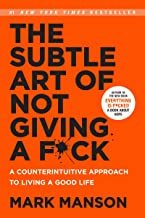
Chapters:
Chapter 1: The Counterintuitive Approach
Manson introduces his counterintuitive strategy for leading a good life at the start of the book. Many individuals, according to Manson, are concerned with success and happiness, which only serves to make them sad. He advises people to concentrate on their ideals and what is actually important to them rather than on these things. Manson's strategy is predicated on the notion that each of us has a finite number of fucks to give away and that we should be picky about where we spend our fucks.
Chapter 2: The Problem with Positivity
Manson contends that a culture of optimism fostered by the contemporary self-help sector is ineffective. Instead of attempting to control their bad feelings, he advises individuals to embrace them. Negative feelings, according to Manson, can be a source of inspiration and can show us what matters to us most.
Chapter 3: The Importance of Failure
Manson is of the opinion that failure is a necessary component of success. He contends that rather than fearing failure, people should embrace it. Manson contends that failure may be a strong motivator and presents an opportunity for learning and development. Additionally, he thinks that people ought to be willing to take chances even if they end up failing.
Chapter 4: The Value of Pain
Manson contends that accepting pain as a necessary component of life is preferable to striving to avoid it. He contends that suffering may be a great motivator and that it can aid in our development and education. Manson thinks that in order to achieve their aims and uphold their principles, people must be willing to experience pain.
Chapter 5: The Importance of Responsibility
Manson contends that individuals must be accountable for their life. He proposes that rather of placing blame on others, people should take responsibility for their issues and difficulties. Manson thinks that success and personal development depend on accepting responsibility.
Chapter 6: The Importance of Action
Manson contends that action is necessary for people to pursue their principles and aspirations. He contends that people ought to start acting right away rather than holding out for the ideal circumstance. Manson thinks that taking action and being willing to make errors and learn from them are the keys to success.
Chapter 7: The Importance of Death
Manson contends that individuals must face their own mortality. He contends that accepting death's inevitable conclusion enables individuals to lead more fulfilling lives. Manson thinks that rather than wasting time and energy on things that are unimportant, individuals should concentrate on what is actually essential to them.
Chapter 8: The Importance of Humility
Manson contends that prosperity and personal development depend on humility. Instead of attempting to be flawless, he says that people should be willing to recognize their flaws and limitations. Manson thinks that humility may be a strong motivator and can aid in learning and personal development.
Summary:
The book "The Subtle Art of Not Giving a F*ck" questions accepted ideas about success and happiness. Manson contends that rather than worrying over happiness and success, people should concentrate on their principles and what is actually important to them. Manson's strategy is predicated on the notion that each of us has a finite number of fucks to give away and that we should be picky about where we spend our fucks. Manson contends that humans ought to embrace their unpleasant emotions, failure, suffering, accountability, deeds, and modesty.
Conclusion:
The Subtle Art of Not Giving a F*ck: A Counterintuitive Approach to Living a Good Life is a perceptive and thought-provoking work that encourages readers to reconsider how they live. The book is entertaining and engrossing to read because of Manson's funny and sarcastic writing style. The novel is not without faults, though. Manson's vocabulary and humor may turn off some readers, and his message may come across as extremely straightforward or negative.
Notwithstanding these complaints, "The Subtle Art of Not Giving a Fuck" has found a loyal following among millions of readers worldwide. The message of the book is especially pertinent in today's fast-paced, dynamic environment when people frequently feel overwhelmed by the demands of modern living. Manson's method is a welcome contrast to the optimistic culture that rules the majority of the self-help sector. All things considered, "The Subtle Art of Not Giving a Damn" is a book that everyone who is looking for direction in life should read. We all have a finite amount of time and energy, so we should be picky about where we spend our fucks, as demonstrated by Manson's counterintuitive approach to happiness and success. We can learn and evolve, and ultimately lead more rewarding and meaningful lives, by accepting our unpleasant feelings, mistakes, suffering, and mortality.
Several readers have praised the book, including business executives, athletes, and public figures. Many people have found Manson's message to be freeing and uplifting since it exhorts them to take charge of their life and pay attention to what is most important. Manson's method has also been lauded for its sincerity and authenticity because he doesn't avoid talking about the unpleasant facts of life.
The significance of values is one of the book's main lessons. Manson contends that rather than attempting to fit in with society's norms or pursuing objectives that do not correspond with their beliefs, people should concentrate on what they actually care about. We can live a more genuine and satisfying life by determining and prioritizing our values.
The book could also be criticized for not being universally relevant. Younger readers or those who are still looking for their life's purpose may relate to Manson's approach more, whereas older readers or those who have already attained a certain amount of accomplishment may find the book less applicable to their position. Also, it can be challenging for readers who are uncomfortable with Manson's use of coarse language and irreverent humor to connect with the book's message.
The book "The Subtle Art of Not Giving a Fuck" has had a big impact on the self-help sector as well as on popular culture in general, despite these criticisms. Numerous readers have been motivated to live more honestly and authentically as a result of Manson's paradoxical approach to personal development, and the conventional thinking about success and happiness has been upended by his message of embracing failure.
To sum up, "The Subtle Art of Not Giving a Fuck" is a book that is unquestionably worthwhile reading for anyone seeking a novel viewpoint on personal development and self-improvement. Even though Manson's outrageous image may not appeal to everyone, his message of accepting pain and suffering as a way of personal development is strong and empowering. This book is certain to challenge your preconceptions and motivate you to take charge of your life, whether you are seeking a new approach to personal growth or are simply struggling to discover your purpose in life.
To Get Free PDF, Pls, Visit Our Website:
To Get a Free EBook, Pls, Visit Our Blog:
To Get The Book From Amazon, Pls, Click The Link:
#self-help books#personal growth books#self growth#self help#self improvement#most popular books#amazon bestseller books
0 notes
Text
appreciation post for elayne the queen. elayne the politician who is incredibly competent, who is very very good at remaining calm in a crisis and remaining diplomatic in a conflict. second-half-of-series elayne who's grown into a wise and mature leader, who is grounded and practical but still has the same fierce heart she's always had, who feels things so deeply yet manages to set her personal feelings aside in favor of focusing on the bigger picture. who does take big risks, yes, but they're always calculated and planned out in advance, even if they don't always pan out as she'd hoped.
i feel like most elayne appreciation posts are about her comic relief value and ~loony tunes~ energy, or about elayne the aes sedai and her mad scientist tendencies, but To Me elayne the queen is the true heart of her character and the version of herself that she ultimately chooses to be by the end of the series, and it often feels underrated even by her fans. she always gets painted as a disaster, and she certainly has her disaster moments, but at her core, this woman is as distinguished as they come!
#i love to laugh at elayne's shenanigans as much as the next person but she's so much more than just shenanigan-having comic relief#at times it feels like even Tumblr Elayne Squad doesn't truly take her seriously as a character and just goes 'haha she's so funny <3'#yes she IS so funny but her character is deeper than just that! she has more going on that just that!#and again i'm not saying i hate fun and nobody should make any silly lighthearted posts about elayne#just..........wanted to make an appreciation post for Elayne The Queen for Elayne The Serious Character With A Great Growth Arc#elayne trakand#wot#wot book spoilers
71 notes
·
View notes
Text
Reading tip for when you’re reading something educational (self growth, skill based etc)
When you start your self development journey / want to take it even higher, most of us turn to reading books or articles. We take notes and highlight the areas that we found impactful, we remember those points for a couple of days and then boom - we forget.
books are such a wealth of information but it’s not possible to read every single book you’ve read once multiple times.
you might find it frustrating that you can’t seem to remember all that information when you need to, or you keep racking your brains trying to remember exactly where you had read that particular insight.
here’s a method to help you out.
If you have a kindle / read online, make a Word doc/ pages doc of all the things you’ve highlighted. Copy the highlighted areas, which would be areas that you found hopefully/ intriguing/ interesting, and paste them on the word doc. Use only one document for all your notes of different books and every month or so, take about 30 minutes to rapidly go through them.
if you read physical books, take a photo of the sentence/ paragraph that you liked, crop it out so that the other stuff isn’t there, and put that photo in the document.
this allows for a couple of things - information isn’t lost when you finish reading the book. Sometimes we find the solution to a problem too early and when the problem crops up, we don’t remember that we had already found the answer. Two, it allows for revision and three, you may see that with time, the way you understood that particular point changes.
this is not for fictional or fantasy books - this is for books that talk about self development, marketing, sales, technical know how, etc. Stuff that you should remember and would impact your progress positively.
#How to absorb books#How to not forget#Memory#books#c suite#powerful woman#strong women#ceo aesthetic#personal growth#that girl#productivity#getting your life together#balance#books and reading#bookworm#book nerd
1K notes
·
View notes
Text

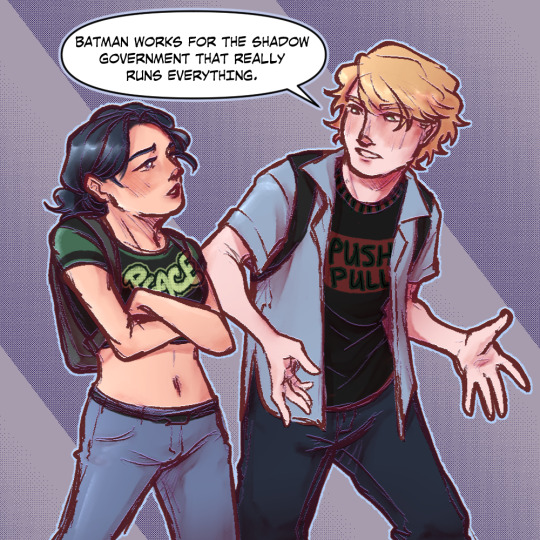

Recently read Shadowpact. Initially read just for Laura Fell, but I really liked this team. DC Universe only has the first 16 issues, so I’ll have to dig around for the last nine issues (I believe it’s 25 issues long?). Laura is so adorable?? Like she’s so sweet and easy to get along with… without the whole supervillain corrupted heart magic thing, that is. Her characterization in Robin is kinda… ya know. But if I ignore that and focus on Shadowpact, she’s easily one of my favorites.
#personal#dreamlessart#dc#tim drake#bernard dowd#darla aquista#laura fell#warlock’s daughter#can you tell I just like characters that are capable of pure joy#it’s why I like fanon batfam#also#I’m a firm believer that Laura/Darla is only like 5 feet tall#and Bernard is like 5’10 by the end of high school#Tim is also like 5’ something in high school#he gets a growth spurt during Red Robin but he still tops out at like 5’7 imo#that’s just my height headcanons though#why is it that half of comic book characters have black hair and blue eyes#like#it’s not a common pairing irl right ?#but it’s super common in DC’s earths
59 notes
·
View notes
Video
youtube
FEELING PUSHED AND PULLED? WANT TO KNOW WHY YOU ARE ENERGETICALLY TIRED AS YOU STEP FORWARD IN YOUR OWN INDEPENDENCE - NO MATTER WHERE YOU ARE IN THE WORLD?
While the U.S. in the middle of Independence Day weekend, the world is energetically feeling the push-pull of individual vs. collective consciousness independent/unified thinking within our global and personal evolution If you need to understand it, I’m translating energies with another Healing Time Out: https://youtu.be/U9Mbzn1iBmY Check out this new audio to help you navigate what’s going on in your own communicative self-awareness consciousness.
#Linkronicity#Stacey Kumagai#Collective Consciousness#Communications#Energywork#mind-body-spirit#soul journey#planetary alignment#energetic shift#crossroads#feelings#expanded thinking#independence#true self#health and wellness#well-being#personal growth books#personal discovery#personal evolution#World Healing#world change#navigating change#transformation#transitional period#growth#self-awareness#self-help#boundaries#fears#stress triggers
1 note
·
View note